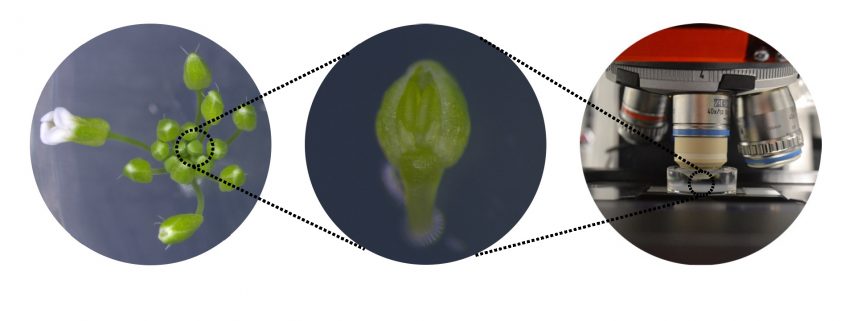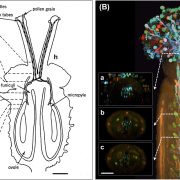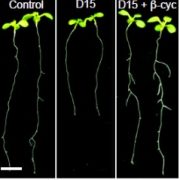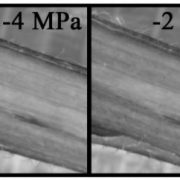High temperature and heredity
De Jaeger-Braet and colleagues explore the effects of high temperatures on meiotic recombination in Arabidopsis.
Background: One of the hidden, yet far-reaching consequences of the current climate change crisis is an alteration of how particular plant genetic characteristics are transmitted from parents to their offspring. The underlying reason fueling this genetic effects is that a key mechanism by which the offspring genotype is different from that of their parents, called meiotic recombination, is highly temperature-sensitive. Meiotic recombination takes place in specialized cells, called meiocytes, and is very important for sexual reproduction as the meiocytes produce cells that eventually form the gametes. Meiotic recombination is also central to agriculture, since this is the major route by which favorable features such as large grain size and efficient water use are combined in crops.
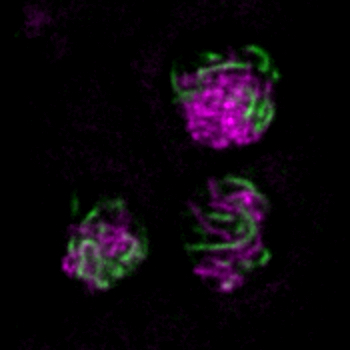
Image of meiocytes with two structural elements important for meiotic recombination highlighted in green (ZYP1) and magenta (ASY1)
Question: Despite its importance, very little is known about how temperature affects recombination at the molecular level. Moreover, most studies of meiotic recombination in plants rely on fixed flower material and hence, the dynamic nature of meiotic recombination either cannot be or is not easily analyzed. To complement and expand on these studies, we followed meiocytes by live cell imaging in a flowering plant commonly used in molecular plant research, Arabidopsis.
Findings: Our work led to a detailed understanding of how temperature affects meiocytes and the progression of meiotic recombination. Importantly, we identified a previously unrecognized control mechanism for how plants react to temperature-induced failures in meiotic recombination.
Next steps: We would like to understand the nature of these failures during meiotic recombination in response to high temperatures and how they can be recognized by plants to be corrected, if possible.
Reference:
Joke De Jaeger-Braet, Linda Krause, Anika Buchholz and Arp Schnittger (2021). Heat stress reveals the existence of a specialized variant of the pachytene checkpoint in meiosis of Arabidopsis thaliana. The Plant Cell, https://doi.org/10.1093/plcell/koab257


